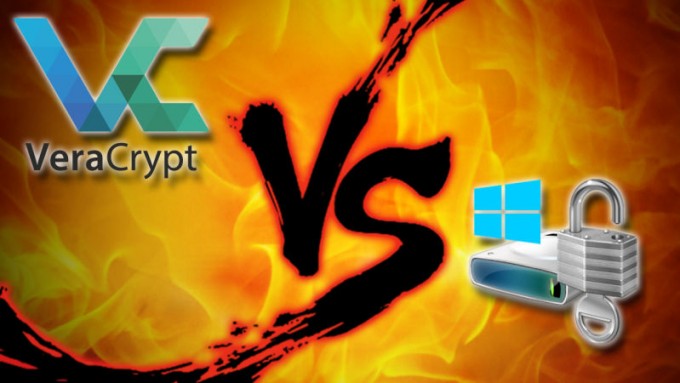
In 2023, businesses are facing a number of new challenges when it comes to data security. The increasing use of cloud computing, mobile devices, and big data are all creating new opportunities for attackers. Encryption is one of the most effective ways to protect data from unauthorized access, and its use is becoming increasingly important for businesses of all sizes.
There are a number of different encryption trends that are affecting businesses in 2023. One of the most important is the rise of homomorphic encryption. Homomorphic encryption is a type of encryption that allows data to be processed without being decrypted. This makes it ideal for a number of applications, such as data analytics and machine learning.
Another important trend is the development of quantum-resistant encryption. Quantum computers are still in their early stages of development, but they have the potential to break current encryption standards. Quantum-resistant encryption is designed to be secure even against quantum computers.
Finally, businesses are also increasingly using encryption to protect data in transit. This is done by using encryption protocols such as TLS (Transport Layer Security) and IPsec (Internet Protocol Security). These protocols encrypt data as it is being transmitted over a network, which helps to protect it from being intercepted by attackers.
Here is a breakdown of these specific Encryption trends:
- Homomorphic encryption: Homomorphic encryption is a type of encryption that allows data to be processed without being decrypted. This means that data can be added, subtracted, multiplied, and divided without the need to decrypt it first. This makes homomorphic encryption ideal for a number of applications, such as data analytics and machine learning. For example, a business could use homomorphic encryption to analyze data stored in the cloud without having to decrypt it first. This would help to protect the privacy of the data, as it would not be stored in a decrypted form.
- Quantum-resistant encryption: Quantum computers are still in their early stages of development, but they have the potential to break current encryption standards. This is because quantum computers can perform calculations that are impossible for traditional computers. Quantum-resistant encryption is designed to be secure even against quantum computers. This is important because businesses need to be able to protect their data from future threats.
- Data in transit encryption: Data in transit encryption is the process of encrypting data as it is being transmitted over a network. This helps to protect the data from being intercepted by attackers. Data in transit encryption is often used for applications such as email, file sharing, and web browsing. For example, when you send an email, the email is encrypted before it is sent over the internet. This helps to protect the email from being read by attackers who may be monitoring the network.
As the threats to data security continue to evolve, encryption will become an increasingly important tool for businesses. By using encryption, businesses can help to protect their data from unauthorized access and theft.
Encryption on the global stage
As recent public policy debates have dramatically illustrated, encryption affects everyone. In the wake of the standoff between the FBI and Apple over access to an iPhone used by San Bernardino shooter Syed Rizwan Farook, U.S. lawmakers are presently debating proposed legislation to address future incidents.
A Senate Intelligence Committee bill that would require companies to provide government agencies with technical assistance to access encrypted data has garnered little support due to tech industry and civil liberties opposition. Conversely, a compromise House Homeland Security Committee bill that would set up a research commission appears more likely to move forward. British lawmakers, meanwhile, are pursuing measures that would require communication service providers to disable or remove end-to-end encryption, The Register reports.
Such policy debates sparked by terrorist incidents have made headlines, but for businesses, encryption seems a far less dramatic issue, despite the significant role it plays in daily operations. Here are some ways encryption trends are affecting security, storage and productivity for today’s businesses.
Security

Encryption’s quantum leap: The race to stop the hackers of tomorrow
Global enterprise adoption of security encryption has more than doubled over the past decade, according to research carried out by the Ponemon Institute. The number of companies deploying enterprise-wide encryption rose from 15 to 37 percent between 2005 and 2016, while the number without an encryption strategy fell from 38 to 15 percent over the same period. Compliance with privacy and data security requirements was the biggest driver of security adoption, according to 61 percent of companies involved; another 50 percent saw protection of enterprise intellectual property as the primary reason for encryption. Employee mistakes are viewed as the biggest threat to sensitive and confidential data, followed by system malfunction and hackers.
Enterprises are using a wide range of encryption technologies for a variety of purposes. The most common deployments are databases, internet communications, laptop hard drives and server backup. Furthermore, 56 percent of these companies are now using cloud encryption. The data that enterprises encrypt most often includes employee and HR data, payment-related data, intellectual property and financial records. Encryption adoption is most widespread in financial services, health and pharmaceuticals, and technology and software industries.
Storage

How to master Android Nougat’s new Direct Boot mode
Three major data storage trends are also having a major impact on encryption and security, says Blancco Technology Group. First, with IT research firm Gartner predicting that 25 billion devices will be connected to the Internet of Things by 2020, the number of devices and amount of data that needs to be protected by encryption is growing exponentially. This creates challenges for how to secure these devices and accommodate the ever-increasing amount of data.
Second, newer devices such as the iPhone 6S have adopted a new communications standard called Non-Volatile Memory Express (NVMe), which allows solid state drives to run at the maximum speed allowed by the Flash technology used to store data. This will allow faster transfer speeds with lower latency, but it will also create challenges for companies using outdated data security software. Only the newest professional-quality software will be able to perform tasks like safely erasing data from newer devices.
Third, as more companies adopt security-enabled hardware, it will become more tempting to rely solely on encryption to protect data. But even with encryption codes that cannot be cracked, there are ways to exploit other security vulnerabilities and access data, particularly for data in the end-of-life phase of its lifecycle. The FBI’s successful iPhone hack illustrates this problem. A comprehensive security approach should combine encryption with other security measures to ensure that there is no way cyberthieves can recover data or bypass encryption otherwise.
Productivity

Windows Encryption Showdown: VeraCrypt vs Bitlocker
Productivity is another area affected by encryption. The biggest potential problem occurs when the security key or password used for encryption gets lost, making data irretrievable. Effective key management is one of the biggest priorities for companies deploying encryption.
Another productivity challenge is file sharing, due to the need for decryption on the receiving end. For maximum productivity, companies should adopt workflow and software that streamlines this process.
A third challenge is that encryption can slow device access to content. While devices are becoming increasingly efficient, enterprises should pay attention to any loading delays when using encryption.




